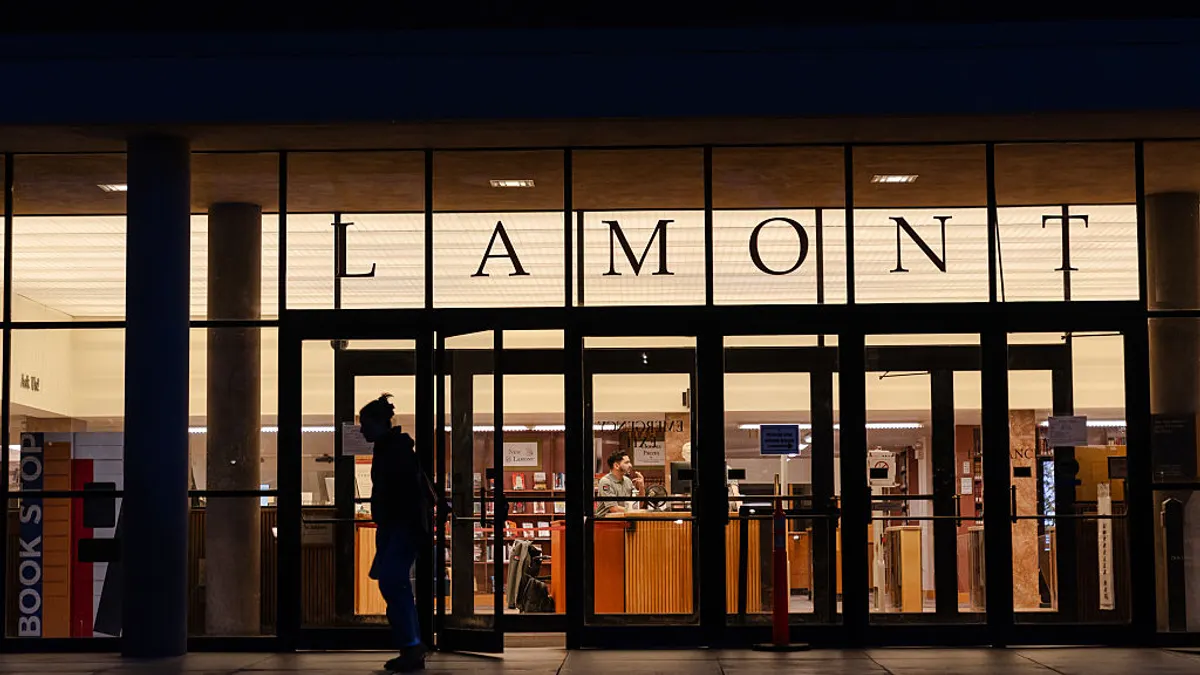Dive Brief:
- The U.S. Education Department has released the list of industry representatives who are set to participate in the negotiated rulemaking session on college accreditation scheduled to begin later this month.
- The diverse group of stakeholders represents students, accreditors and various types of higher education institutions, including the University of Alaska, the parent company of for-profits Strayer University and Capella University, Southern New Hampshire University (SNHU) and Brigham Young University.
- The agency has indicated the sessions will tackle a range of issues, including the definition of the credit hour, accreditor oversight and requirements for teacher-student interaction in online programs. The stakeholders will have until the end of March to come to an agreement about the proposed regulatory overhaul.
Dive Insight:
The Ed Department's proposal to give accreditors more leeway in program approval could drive momentum for online and competency-based education (CBE) — two areas where some negotiators have large stakes.
For instance, the University of Alaska offers dozens of distance learning programs, SNHU enrolls more than 90,000 online students, and Strayer and Capella universities target their online education at working adults. In addition, Liberty University, a backup negotiator for private nonprofit colleges in the sessions, has become one of the largest providers of online education in the U.S., though some former students have questioned the value of the education it provides.
The Ed Department's proposed regulatory overhaul could ease the path for these colleges to further grow their online presence and explore new educational models. Under the proposal, colleges would no longer need approval from all states where online students are enrolled or to disclose whether their programs meet that state's licensing requirements, and they could outsource more of their programs to unaccredited providers, The Washington Post reported.
Several stakeholders could also benefit from the Ed Department's plan to ease rules that require distance learning programs to include "regular and substantive" interaction between students and their instructors.
Opponents of the changes have warned that stripping away these requirements will result in colleges lowering their investment in courses such as by leaning on pre-recorded lectures and outsourcing instructional duties to those without course-matter expertise.
Fears are also swirling around how loosened standards could affect CBE. (Several negotiators have large CBE programs, including Capella, SNHU and Sinclair Community College.) While CBE has seen explosive growth in recent years, the nonpartisan think tank New America has noted it lacks sufficient oversight from accreditors.
Although the stakeholders have overlapping interests, some predict they won't reach a consensus on the issues, especially after negotiated rulemaking sessions last year failed to yield an agreement over proposed changes to the gainful employment and borrower defense rules.
The Higher Education Act requires the Ed Department to go through the negotiated rulemaking process for some rule changes so representatives of affected groups can take the first crack at developing new policies. Only in the event that the committee members can't reach a consensus does the Ed Department get to hammer out the details itself.
With a packed docket for the session, some have suggested the Ed Department may be intentionally setting up the committee for a stalemate so the agency can write the rules without outside input.
Diane Auer Jones, the Ed Department's principal deputy under secretary, has said she thinks it's possible for the committee to reach agreement, Politico reported.







